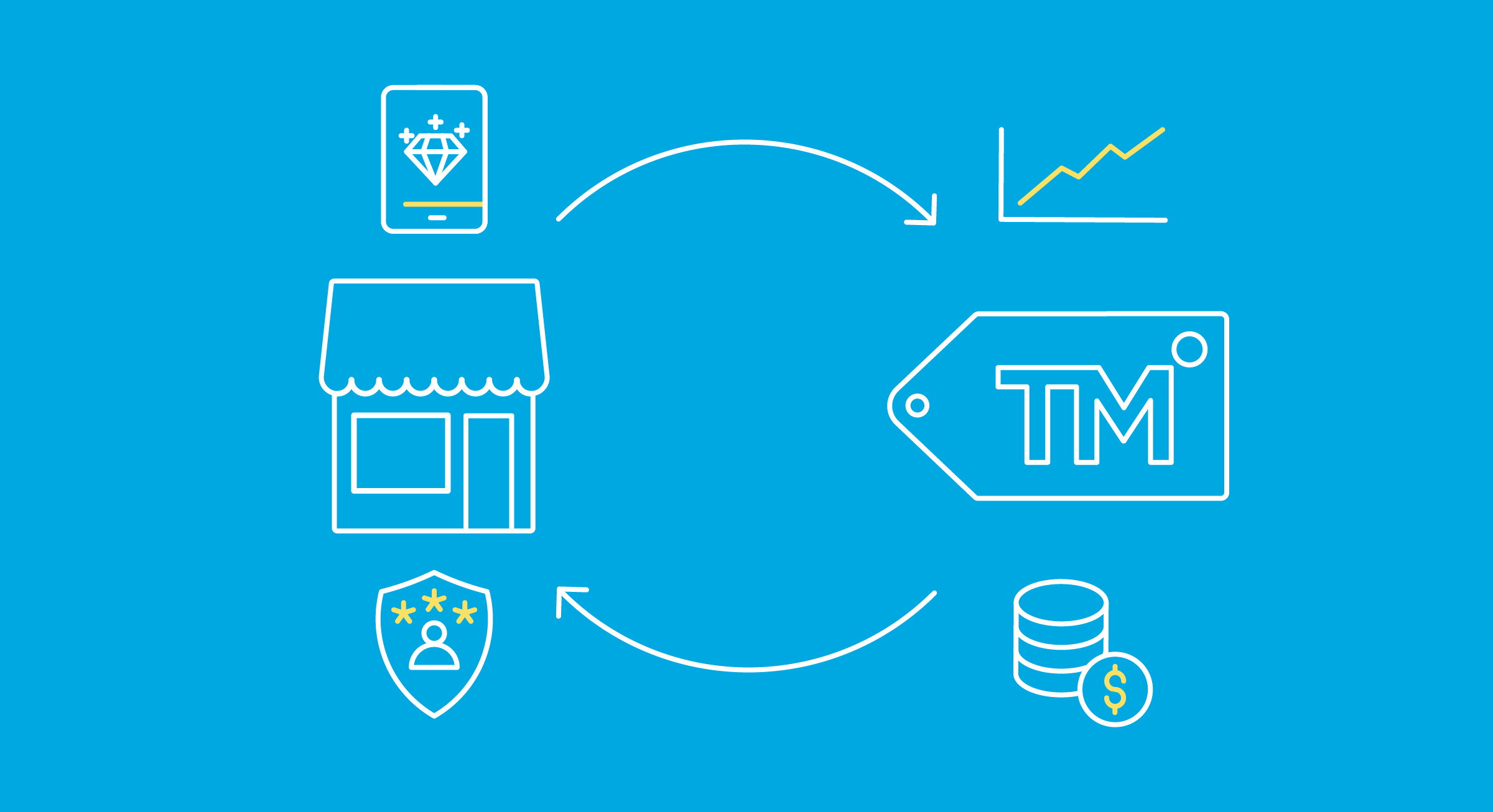One of the most fascinating but still somehow underrated evolutions in business is the rise and rise of what you might call a ‘collaboration economy’.
What’s really interesting is how data – in particular first-party data – is often the connective tissue binding these organisations in these new endeavours.
Businesses – often from different sectors – are finding increasingly novel ways to collaborate and accrue a greater data advantage than they could have on their own.
What’s even more interesting is how much of an opportunity this is for retailers specifically. It’s especially interesting given the cloud with a giant orange smile looming over that sector right now.
All retailers are looking for ways to stay competitive with Amazon. And while monetising first-party data looks like an essential component of that, the collaboration opportunities that data unlocks shouldn’t be overlooked.
How retailers can leverage customer data to deliver better experiences
For all sorts of businesses in all sorts of verticals, the first-party data retailers have access to provide invaluable insights into what consumers buy, how they buy and where they buy.
This allows retailers to identify any potential gaps in their offering, and creative solutions for how to fill those gaps. Methods like ‘coopetition’, creating a cooperative relationship with another company that could be thought of as a competitor.
An example of this is Sainsbury’s identifying that a partnership with Argos could lead to benefits for Sainsbury’s, Argos, and their customers. In 2015, Sainsbury’s opened Argos concessions within 10 stores, providing their customers with access to 20,000 new products.1
This has since led to Sainsbury’s both acquiring Argos and opening 300 Argos concessions inside Sainsbury’s stores.2
Going one step further than this form of siloed partnership, it’s possible to identify an even more integrated collaboration.
Take the partnership between Pottery Barn and Sherwin-Williams in the US. By identifying that there was overlap in their customer bases, they were able to identify an opportunity to work together to better serve customers and increase sales.
They created a range of paints and furniture that complemented each other3, taking the pressure off their customers to be experts in interior design. And it meant that they were able to keep a customer in store by solving more problems in one place.
These benefits can be applied to other verticals, for example imagine the following:
Sports retailers can forge compelling partnerships with the apps people use to stay fit everyday.
Auto retailers can establish better relationships with partners that drive efficiencies down the entire supply chain.
Luxury retailers can establish collectives that create a premium and crucially, exclusive, experience capable of aggregating a larger pool of prospects than any one of them might attract on their own.
Even outside of retail are real-world examples aplenty of this type of cautious collaboration. Here are two:
What first-party data collaborations look like
Spotify and Uber work together to create “a soundtrack for your ride.” This is a great example of a co-branding partnership between two very different products with a very similar goal – to give their users a better, more connected experience.
When customers are waiting for their Uber to arrive, Spotify prompts them to choose from their own playlists and become the DJ of their trip. This serves two mutual benefits:
- Fans of both platforms get a better experience.
- Fans of both platforms have a good reason to keep coming back for more.
This kind of first-party data-driven collaboration will certainly seem easier for pure-play software companies. But even businesses from other sectors can still use software to gain the same kind of advantages.
CapitalOne has created a set of APIs to bring it closer to retailers and other financial services. The APIs let CapitalOne integrate their providers’ capabilities and services, like identity verification and fund transferring, into their own services.
For example, CapitalOne’s API partnership4 with Finicity, a leading provider of real-time financial data aggregation and insights, allows CapitalOne customers to share financial data with the third-party apps and services that Finicity supports in a way that is safe, secure and within the customer’s control.
While this kind of API integration allows companies to share data quickly and accurately, investing in the ecosystem to make it possible can be daunting. This is where a first-party platform can prove invaluable.
A platform for safer first-party data collaboration
The collaboration economy provides retailers with the opportunity to deepen relationships with consumers, turn competitors into collaborators, and open up new revenue streams. But in order to do that, retailers need a privacy-safe, compliant way to share data.
Collaborating with other businesses comes with many potential risks, in particular:
- Sharing directly identifiable personal data can create business risk – especially where a partner’s non-compliance can affect you
- Ensuring that data you share is only used for the purposes and period for which you have consent from data subjects, and that whenever possible it is pseudonymised
- Ensuring that data subjects retain control over and access to their data at all times
That’s why we’ve been working hard on our platform to allow business to build data partnerships with privacy by design principles such as pseudonymisation, data limitation and purpose limitation built in.
With a platform to onboard customer data, you also gain the ability to collaborate with that data any way your organisation sees fit – with reduced risk since the platform enforces how data is permissioned and used.
All of this combined means that retailers can form safer, smarter partnerships fast, and dive headfirst into the collaboration economy.
Find out how LiveRamp can launch you into the collaboration economy today.
1 https://www.about.sainsburys.co.uk/news/latest-news/2015/27-05-2015
2 https://www.retailgazette.co.uk/blog/2020/02/sainsburys-opens-300th-milestone-argos-concession/
3 https://press.sherwin-williams.com/press/consumer/releases/2013/williams-sonoma-partnership/
4 https://www.finextra.com/pressarticle/75027/capital-one-inks-data-sharing-deal-with-finicity
